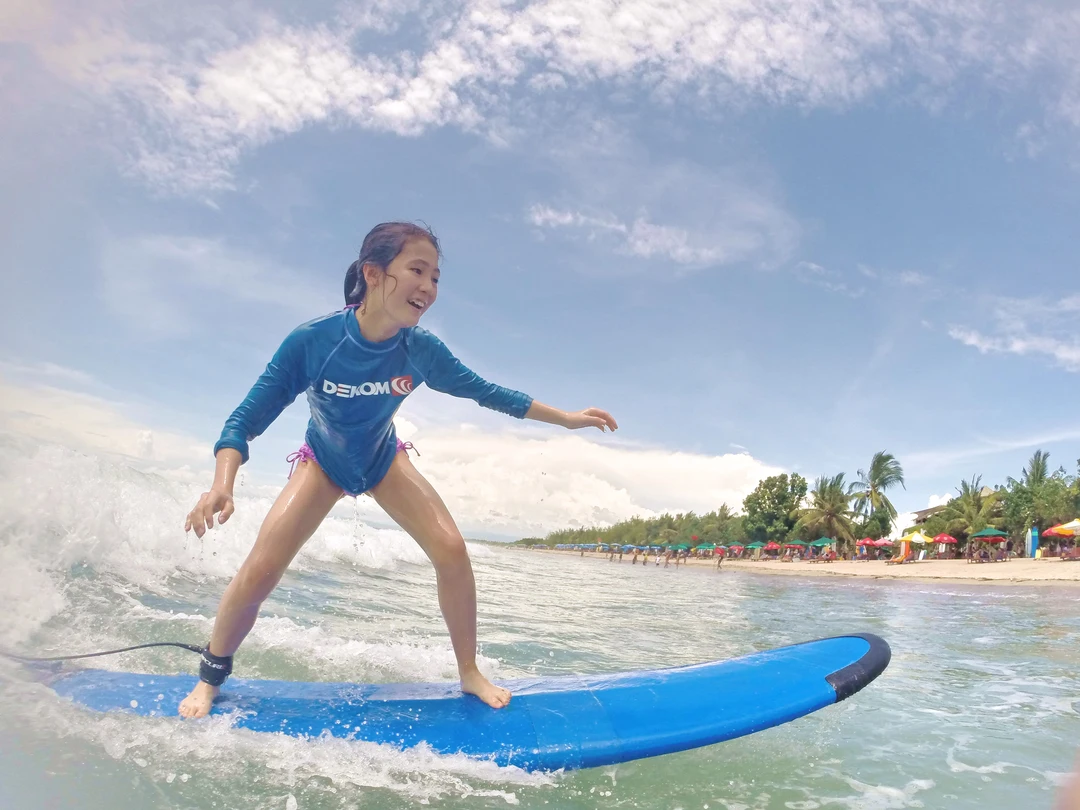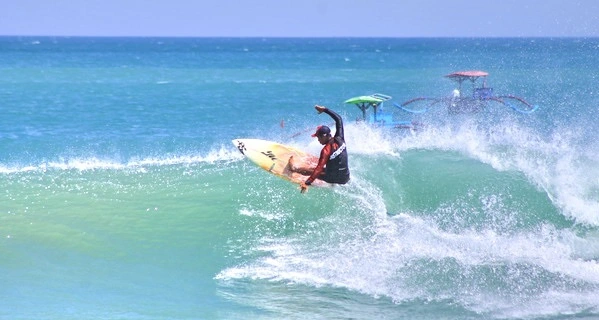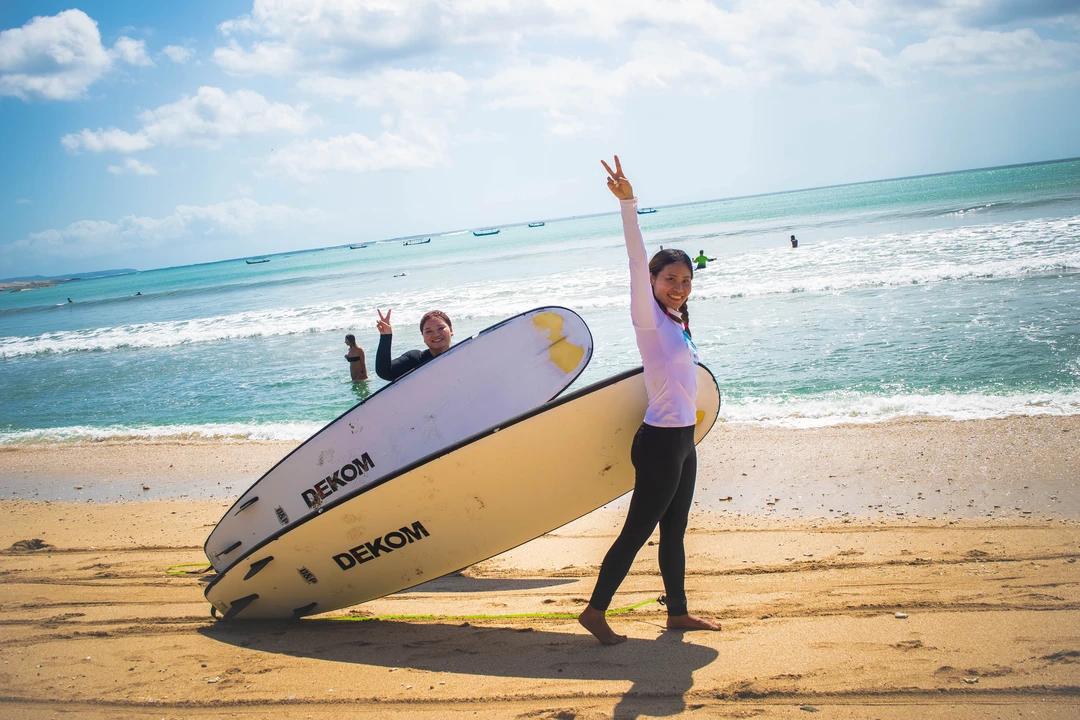You know the drill. You’ve been eyeing that perfect wave, ready to nail that new trick you’ve been working on.
The sun’s out, the swell’s just right, and maybe—just maybe—you’re even picturing how sick this is going to look on your Instagram. But then, just when you think you’ve got it, boom—wipeout city. It’s frustrating, right? But hey, don’t sweat it. Everyone hits this wall at some point. The difference between staying stuck and leveling up often comes down to a few key things that you might not even realize you’re doing wrong. Let’s dive in and see what’s tripping you up—and more importantly, how to fix it.

1. Chasing That Perfect Insta Shot? Here’s Why It Might Be Messing You Up
We’ve all been there. You’re out in the lineup, and you can almost see that epic shot already—perfect stance, mid-turn, spray flying everywhere. The problem? When you’re too focused on how you’re going to look, you’re often not giving the trick itself the attention it needs. And trust me, the ocean can tell when you’re faking it.
What’s Going Wrong:
Rushing Your Pop-Up: If you’re hurrying through your pop-up just to get into the “right” position for the camera, you’re likely sacrificing balance. It’s like skipping steps when you’re building something—you might get it done faster, but it’s not going to hold up under pressure.
Overcomplicating Your Moves: Maybe you’re trying to throw in a fancy grab or an extra spin before you’ve even nailed the basics of the trick. That’s like trying to run before you can walk—and in surfing, it usually ends with you eating it hard.
Neglecting the Basics: When you’re caught up in how you look, it’s easy to forget the fundamentals—like strong paddling, proper foot placement, and staying centered on your board. These are the building blocks, and without them, you’re going to struggle to pull off anything advanced.
How to Nail It:
Focus on Flow, Not Flash: Slow down and make sure your pop-up is solid. You want to be fully balanced before you start thinking about style points. It’s not about rushing—it’s about precision.
Master the Fundamentals First: Seriously, don’t skip steps. Get your basics down so well that they’re second nature. Once you’ve got that muscle memory, then start adding in the flair.
Stay Loose and Present: The best surfers are the ones who can stay relaxed and go with the flow. The ocean’s got a rhythm—if you’re too tense or too focused on what you think it should be, you’re going to miss out on what it actually is.

2. Picking the Wrong Wave: Not Every Wave Wants to Be Ridden
Here’s something that a lot of surfers—especially newer ones—tend to overlook: not every wave is your friend. Sure, they all look tempting when you’re out there, but some waves are just not meant for the tricks you’re trying to pull off. The key? Learning to read the wave and knowing when to go for it—and when to let it pass.
What’s Going Wrong:
Misjudging the Wave Type: Maybe you’re going after waves that are too steep or too soft for what you’re trying to do. For example, trying to get a nice, clean snap on a mushy wave? Not gonna happen. That’s a setup for frustration.
Ignoring the Wave’s Shape: Each wave is different—some are smooth and mellow, others are fast and punchy. If you’re not adjusting your approach to match the wave, you’re likely going to find yourself struggling.
Overestimating Your Abilities: If you’re going for waves that are just too big or too powerful for your current skill level, you’re setting yourself up for a rough ride. Confidence is key, but so is knowing your limits.
How to Nail It:
Learn to Read the Waves: Spend time just watching the waves. Notice how they break, where they start to pitch, and where the best spot is to take off. The more you understand about the wave itself, the better your chances of riding it successfully.
Match Your Trick to the Wave: Not every wave is good for every trick. If you want to do a floater, find a wave with a soft, rolling lip. Going for a sharp cutback? Look for something steeper with a clean face. It’s all about the right match.
Be Realistic About Your Skill Level: There’s no shame in picking smaller waves while you’re still learning. It’s all about building your skills incrementally. As you get better, you can start chasing those bigger, more challenging sets.
3. Riding the Wrong Board: The Right Tool for the Job
Let’s talk gear. Your board isn’t just a piece of equipment—it’s your partner in crime out there. But if you’re riding the wrong board for what you’re trying to do, you’re basically setting yourself up to fail before you even start. It’s like trying to play basketball with a football—not impossible, but definitely not ideal.
What’s Going Wrong:
Wrong Board for the Trick: If you’re trying to pull off a fast, sharp turn on a big, bulky longboard, you’re going to have a tough time. Conversely, if you’re on a shortboard and trying to glide through slow, mellow waves, you’re not going to get the flow you’re looking for.
Board Size Mismatch: A board that’s too big can be hard to maneuver, while one that’s too small might not give you the stability you need, especially when you’re trying to learn something new.
Poorly Maintained Gear: Even if you’ve got the right board, if it’s not in good shape, you’re going to struggle. Dull fins, dings, or a slippery deck can all throw off your performance.
How to Nail It:
Choose the Right Board for the Conditions: Make sure your board matches both the waves and the trick you’re working on. A fish or funboard can be great for playful, small waves, while a performance shortboard is better for sharper, more technical maneuvers.
Size Matters: Don’t just grab the first board you see. Consider your size, skill level, and the wave conditions. A properly sized board will give you the best mix of stability and maneuverability.
Keep Your Gear in Check: Regularly check your board for damage, and make sure your fins are sharp and your wax is fresh. A well-maintained board is like a finely-tuned instrument—it makes everything smoother and more enjoyable.

4. Your Mindset: Sometimes, It’s All in Your Head
Surfing isn’t just physical—it’s mental, too. If you’re psyched out, you’re going to have a hard time pulling off even the simplest tricks. Fear, doubt, overthinking—they can all mess with your ability to perform. The good news? You can train your mind just like you train your body.
What’s Going Wrong:
Fear of Wipeouts: If you’re constantly worried about falling, you’re not going to fully commit to the trick. And in surfing, hesitation is the enemy. You’ve got to go all in, or not at all.
Overthinking Every Move: If you’re breaking down every tiny movement in your head while you’re trying to surf, you’re not going to be able to flow with the wave. Surfing is about feeling the moment, not dissecting it.
Lack of Confidence: If you don’t believe you can do it, you’re going to hold back. And that hesitation can make the difference between sticking the landing or bailing out.
How to Nail It:
Embrace the Wipeouts: Falling is part of the game. Every wipeout is a chance to learn, so don’t fear it—embrace it. The more comfortable you get with falling, the less it will mess with your head.
Get Out of Your Head: Focus on the wave, not on the mechanics of the trick. Let your body do what it’s been trained to do. Trust your instincts and go with the flow.
Build Confidence Gradually: Start with tricks you’re comfortable with and build up from there. Every small success boosts your confidence, making it easier to tackle bigger challenges.
5. Consistency Is Key: Keep It Up, and You’ll Level Up
Here’s the truth—surfing is all about consistency. If you’re only getting out there every once in a while, you’re not giving yourself the chance to really improve. Surfing requires muscle memory, wave knowledge, and a strong connection with the ocean—all things that only come with time and repetition.
What’s Going Wrong:
Inconsistent Surf Sessions: If you’re not hitting the water regularly, you’re not building the muscle memory or the skills you need to get better. It’s like trying to learn a language by studying once a month—not gonna happen.
Not Enough Water Time: Even when you do surf, if you’re spending more time sitting on the beach than actually in the water, you’re not maximizing your learning. The ocean is your classroom—get out there and soak it in.
Neglecting the Basics: If you’re always chasing the next big trick but neglecting the fundamentals, you’re going to hit a plateau. You can’t build a house on a shaky foundation.
How to Nail It:
Make Surfing a Habit: Try to surf as often as you can. The more time you spend on the water, the faster you’ll improve. Even short sessions add up over time.
Stay in the Water: Make the most of your time out there. Catch as many waves as you can, and use each one as an opportunity to improve. The more waves you ride, the better you’ll get.
Never Skip the Basics: Keep practicing your paddling, pop-up, and balance, even as you learn new tricks. These core skills are what everything else is built on.
Why a Surf Lesson Might Be the Game-Changer You Need
Sometimes, the best way to get over that hump is to get some expert advice. A professional surf lesson can help you pinpoint exactly what’s holding you back—whether it’s technique, wave selection, or mindset. Plus, having someone who’s been there and done that can save you a lot of trial and error.

At Dekom Bali by Kura Kura Bus, our instructors aren’t just experienced—they’re stoked to help you succeed. Whether you’re a total newbie or just looking to refine your skills, our lessons are tailored to meet you where you’re at and help you level up.
Ready to start nailing those tricks? Check out our beginner surf lessons and take your surfing to the next level: https://kura2bus.com/en-idr/activities/dekom-bali-surf-lessons-beginner-class
Remember, surfing is a journey, not a destination. Keep pushing, keep learning, and most importantly, keep having fun out there. The waves are waiting—go get ‘em!






